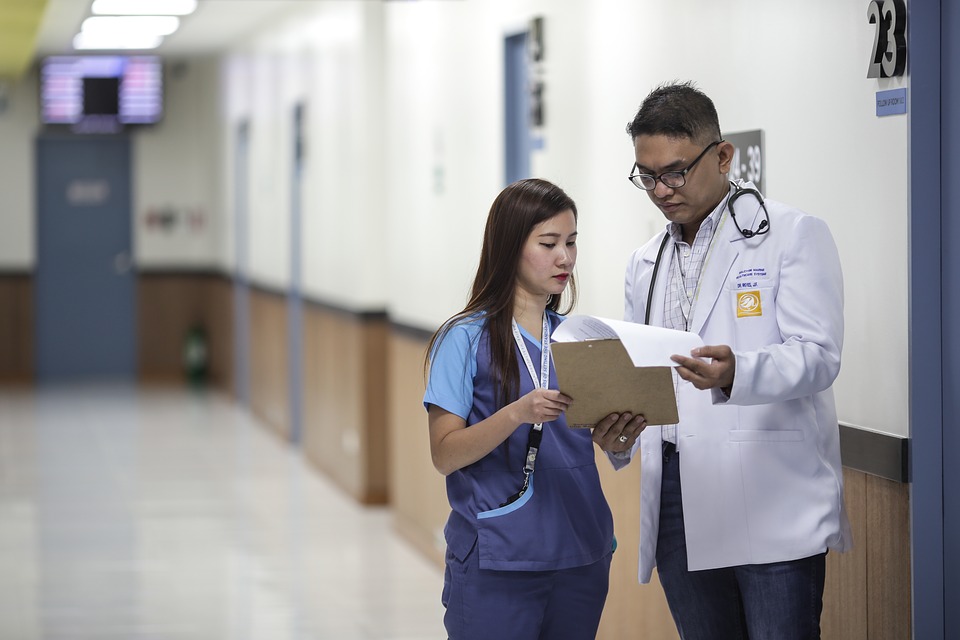The health of your heart is not something that you can wait to get checked out. If you are concerned about the health of your heart you should book an appointment with a cardiologist as soon as possible. Each year 610,000 people die of heart disease in the United States. This accounts for about one out of four deaths in adults each year. Heart disease and heart attacks are too frequent in the United States. You should be doing everything you can to ensure that your heart is healthy and visiting a cardiologist may be one of the top things on your list. If you are looking to see a cardiologist you should not wait.
Reasons To See A Cardiologist
Each year you should be visiting your primary care physician for your annual check-up. During this appointment, your physician should be running a series of tests on you. They will be asking about your family history of diseases, checking your blood pressure, checking your cholesterol levels, asking you questions about your lifestyle, and looking for any warning signs. If your doctor notices that you have high blood pressure, family history of heart disease, or any warning signs of heart disease they may recommend that you see a cardiologist. Some warning signs of heart disease may include your age, family history, high blood pressure, high cholesterol levels, diabetes, history of preeclampsia, history of congenital heart disease, or a history of smoking. Many people fall victim to a heart attack without any warning signs so if your primary care physician recommends that you see a cardiologist you should not wait to book your appointment.
How To Get An Appointment Quickly?
Doctors, even the best doctors in North San Diego, are often very busy and have booked appointments. If you are looking to get an appointment quickly you can talk to your primary care physician about calling the cardiologist and letting them know your particular situation. Primary care physicians often have good relationships with cardiologists and if your physician sees warning signs for heart problems they may be able to get you an appointment quickly.
Another way to get an appointment quickly is asking to be put on the waiting list. If someone cancels their appointment with short notice the secretary can call you and ask if you are available for an appointment in the next day or so. If you are concerned about the health of your heart you should take the first appointment that is available even if it means rearranging your schedule.
If you are having serious complications you can go to the emergency room. At the emergency room, they will run a variety of tests and have you meet directly with a cardiologist. Visiting the emergency room is the best way to get a quick appointment if you feel flutters in your heart or are feeling early signs of a heart attack. It is always better to be safe than sorry, especially when your heart is at risk.
What To Expect At Your First Visit?
Your first visit to a cardiologist typically takes one hour or so. The cardiologist will get a detailed history of your personal health history and family history. They will look at your recent test results from your primary care physician and look at all medications you are currently taking. They will ask you about any symptoms you are experiencing and ask you for information about your lifestyle.
Your cardiologist will likely give you a number of non-invasive tests, including a stress/ treadmill test, a nuclear stress test, an echocardiogram, a possible CT scan, or a PET scan. The tests your cardiologist will recommend depend entirely on your specific situation. You may only need one or these tests or you may need all of them.
Almost everyone is at least given the stress/ treadmill test to determine how your heart holds up under stress or exercise. This test can help your doctor determine if there are blockages in your arteries or any other concerns for heart problems. During this test, you will walk on a treadmill and have electrodes attached to your chest and your limbs. The signals will be sent to an electrocardiogram machine which will read how your heart reacts to exercise. The machine will look for any changes in heart output and your doctor can analyze these results to determine if there are blockages preventing blood from getting to your heart when your heart is at work.
Risk of Heart Disease
Each person has a different risk of developing heart disease, but the best thing you can do to limit your risk is keeping your heart healthy. While everyone is at risk of developing heart disease there are some factors that make you a higher risk. These factors include having high blood pressure and cholesterol, smoking, being overweight, not exercising, and not eating a healthy diet. If you eat a diet with few fruits and vegetables and high a high number of fatty and fried foods you may be putting yourself at an increased risk.
Your family history also affects your risk of heart disease. If your family has a history of heart disease you are also at risk because heart disease can be genetic. If your father or brother had heart disease before the age of 55 or your mother or sister had it before age 65 you may be at risk for developing heart problems early. Women over the age of 55 and men over the age of 45 are at risk of developing heart disease and heart complications. If you are concerned about your risk for heart disease or having a heart attack you should schedule an appointment with your primary care physician to talk about your concerns. Your physician will be able to answer any questions you have and recommend ways to lower your risk.
Keeping Your Heart Healthy
No matter how old or young you are there are always things you can do to keep your heart healthy and keep you from developing heart disease. Some things that you should be doing to keep your heart healthy include eating healthy, participating in regular exercise, staying at a healthy weight, and managing your stress properly. If you find that you are frequently stressed you should find healthy ways to help you manage your stress, like taking up a new hobby, going for a walk, or finding other ways to relax.
You should quit smoking, stay away from people who are smoking and limit your alcohol consumption. You should visit your primary care physician regularly to have your cholesterol and blood pressure checked. You should try your best to keep these two things at healthy levels. If you are unsure about ways to keep these things under control your doctor will be able to give you suggestions. They may recommend that you take your own blood pressure each day or so to help you keep a closer eye on it.
If you are noticing any symptoms of heart disease or early warning signs of heart complications you should not wait to see your doctor. You can schedule an appointment with your primary care physician who can then refer you to see a cardiologist. If you are looking for help immediately and are concerned that you are having a heart attack you should not wait. You should seek immediate attention and visit the nearest emergency room to get checked out. The health of your heart should not wait and you should do everything you can to keep it healthy.







